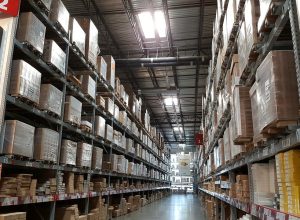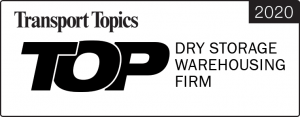 If your business is running smoothly and your products are exceeding sales goals, you may find yourself in a dilemma. All of your success means that you have probably outgrown your facilities and the storage space needed to manage your products. Most businesses believe that “keeping it in-house” is the way to go, but in reality that involves many unknown factors such as “How much space will I need?” and “What kind of equipment do I require?” For these exact reasons, businesses are turning to 3PL’s – like Logistics Plus – in hopes of finding the perfect warehouse partner.
If your business is running smoothly and your products are exceeding sales goals, you may find yourself in a dilemma. All of your success means that you have probably outgrown your facilities and the storage space needed to manage your products. Most businesses believe that “keeping it in-house” is the way to go, but in reality that involves many unknown factors such as “How much space will I need?” and “What kind of equipment do I require?” For these exact reasons, businesses are turning to 3PL’s – like Logistics Plus – in hopes of finding the perfect warehouse partner.
Warehouse Location
One of the most important factors in selecting the right warehouse partner is location. Where do you sell the majority of your product(s)? Do you need regular access to the goods? Do you want the warehouse to be close to your production facility so that you can avoid high transportation charges? For example, if you sell your product across the United States, it might make sense to choose a warehouse partner that has access to multiple facilities across the country. This will ultimately lead to the most savings on your transportation costs.
Services Required
It’s important to know exactly what services you require from a warehouse before you begin your search. If you are primarily an e-commerce seller, you want to find a warehouse that has “pick, pack, and ship” fulfillment capabilities. If you work exclusively with Amazon, you want to find a partner with reliable FBA (Fulfillment By Amazon) or FBM (Fulfillment By Merchant) expertise. Lastly, if you require transloading services then you will need a warehouse that has the ability to handle short-term storage and staging. By addressing your requirements upfront, choosing the proper partner to meet all of your needs will be less cumbersome.
Technology and Inventory Management
Leveraging a 3PL that has strong technology solutions means you can level the playing field without investing hundreds of thousands of dollars in systems and IT infrastructure. A warehouse management system (WMS) needs to be able to communicate inventory levels to the customer and notify them when items are running low. A state-of-the-art WMS tends to be more important for businesses that have fulfillment needs rather than just storage.
Security and Storage
Everything mentioned above won’t matter if your product isn’t kept safe. A good warehouse partner will have security measures in place around their facility to reduce the chance of theft and damages. Look for a warehouse that has alarms, cameras, and fencing around the perimeter. If your product requires additional safe-keeping inside the warehouse, make sure to discuss that with the warehouse staff before you sign a contract.
Overall, your warehouse partner should provide flexible solutions that fit your growth strategy and drive efficiency to maximize your cost-savings. Having a 3PL provider like Logistics Plus ensures that you have the back-end resources to give you time to do what you do best – grow your business!


